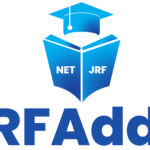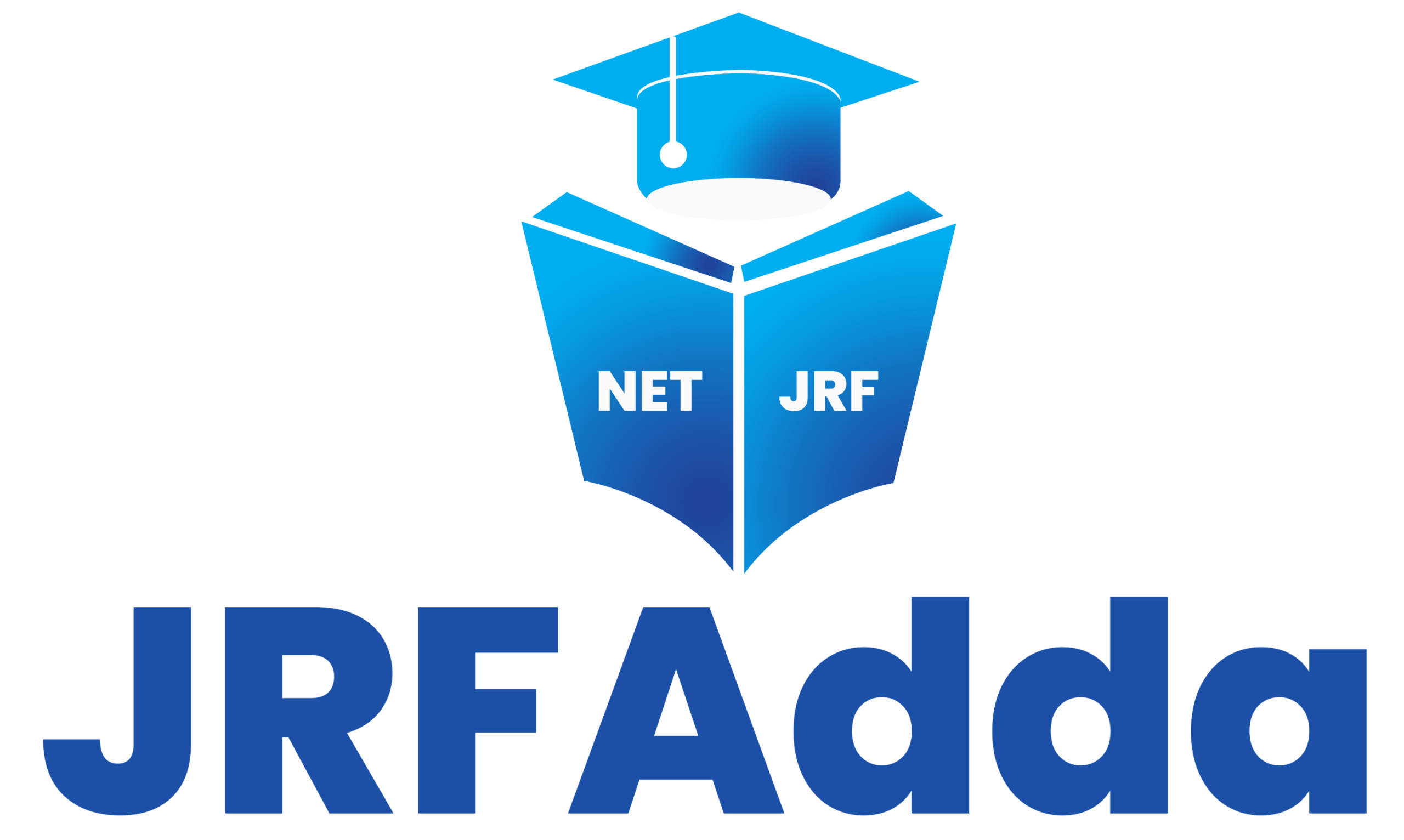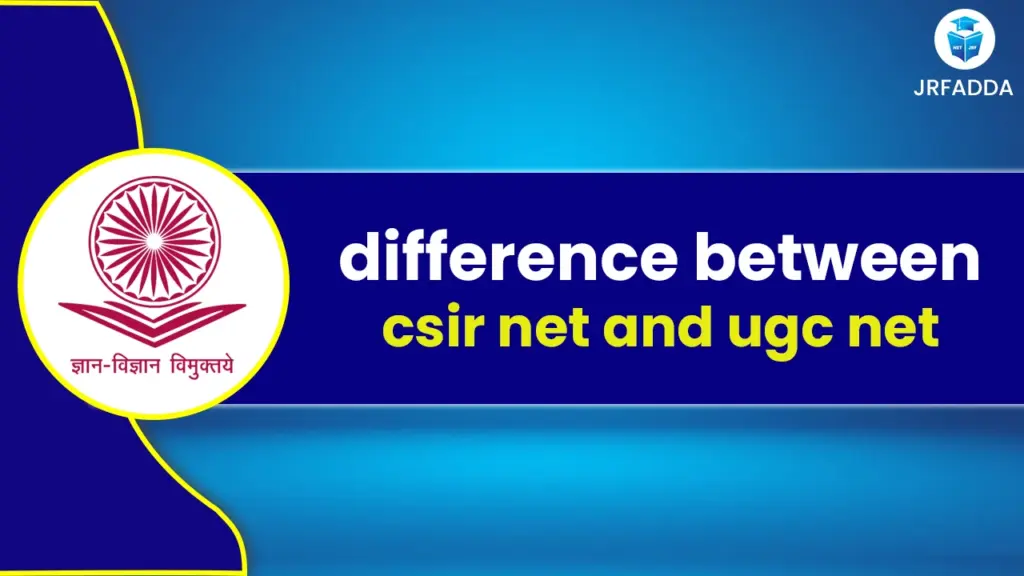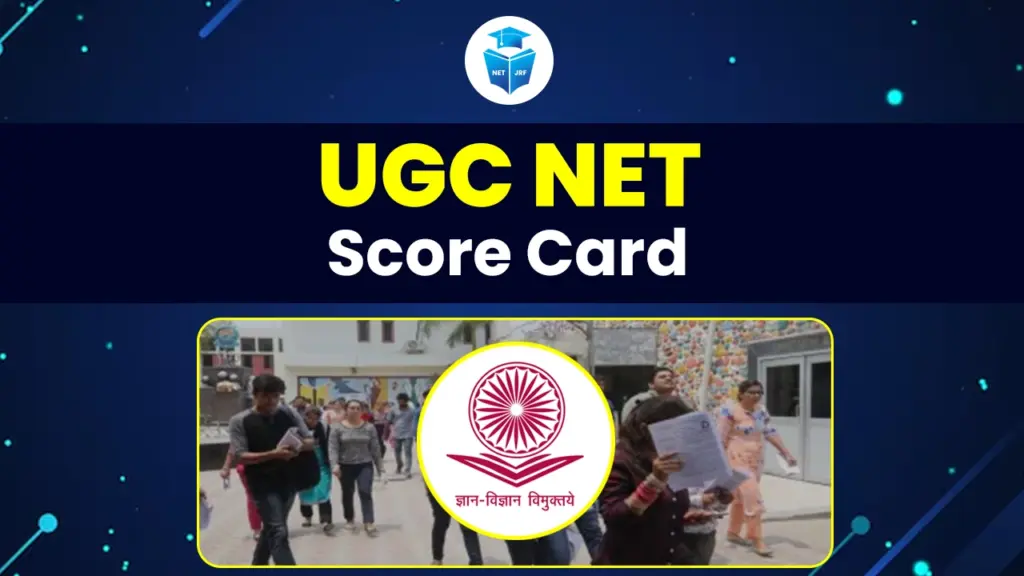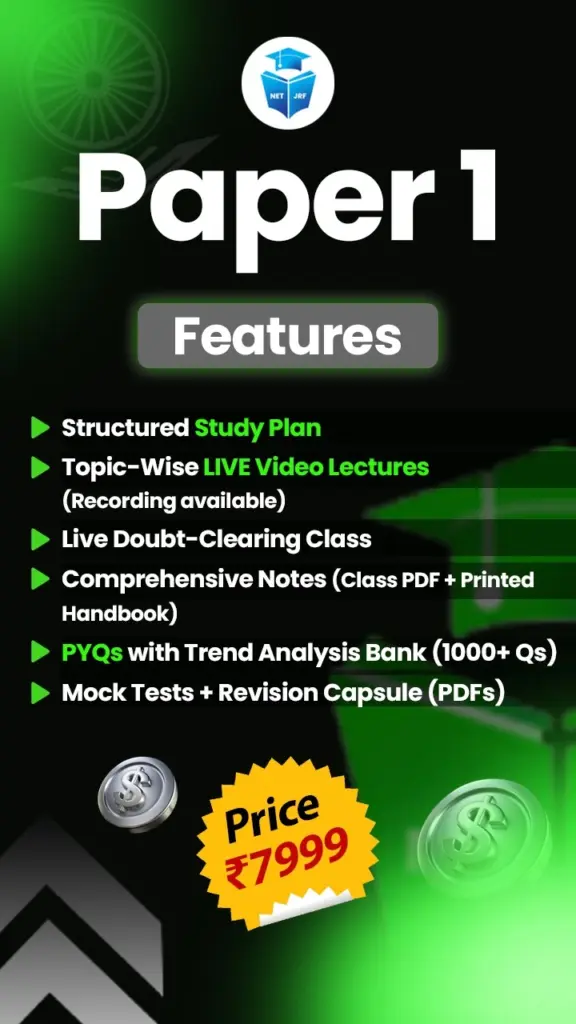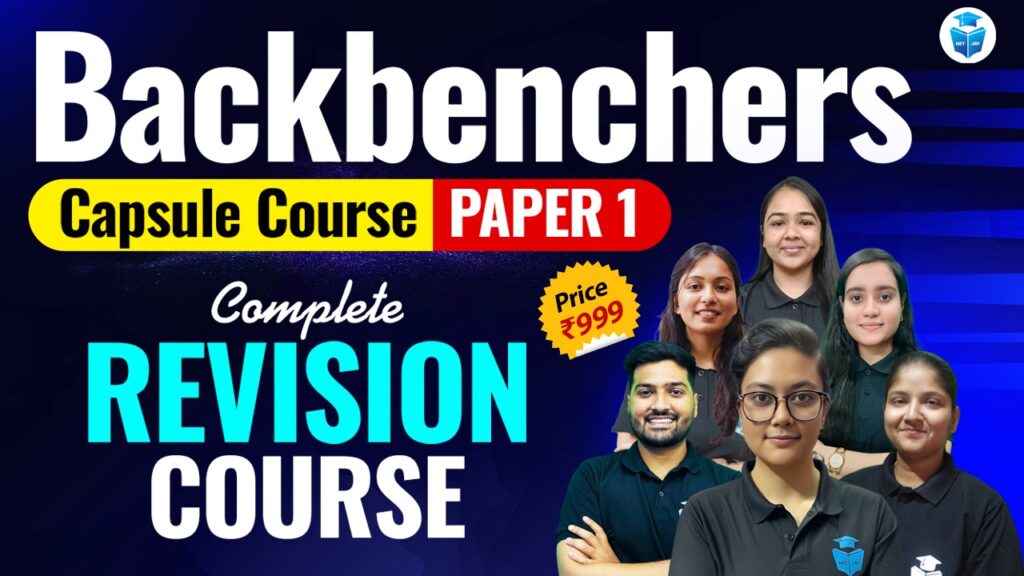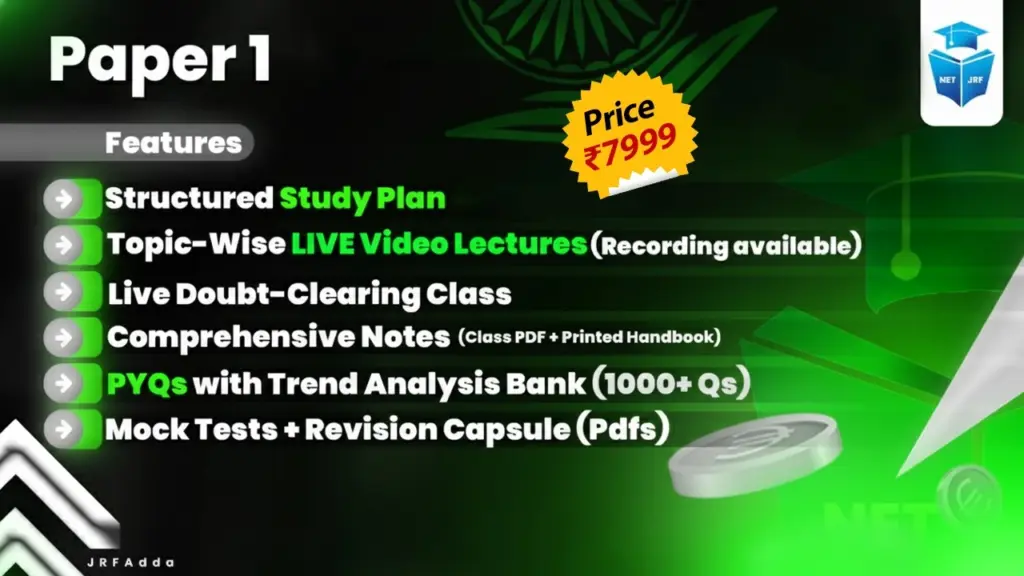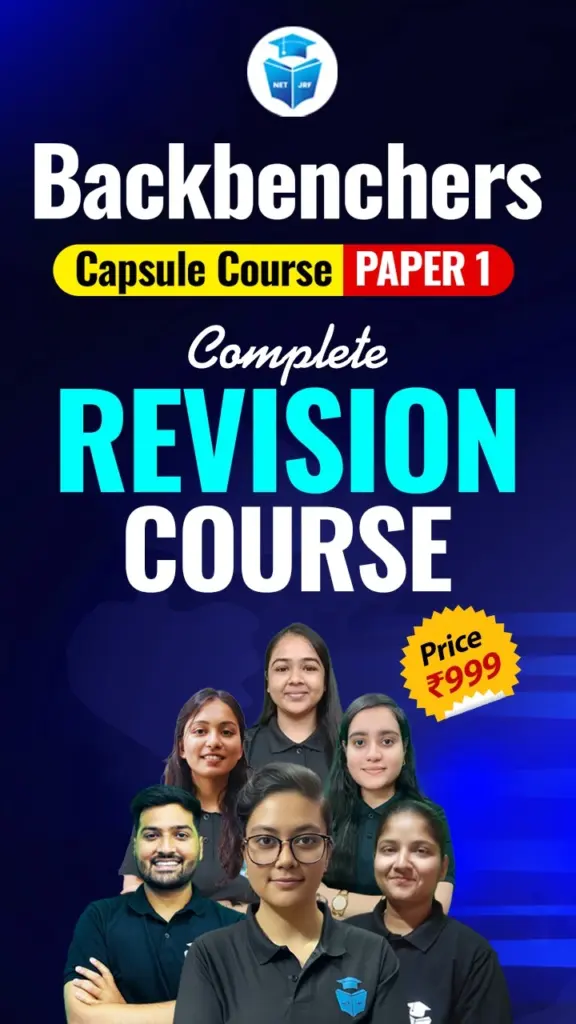Difference Between UGC NET and CSIR NET is crucial for those who plan for research or teaching professions. Both the tests are organized by the National Testing Agency (NTA), though for different fields of study and research. CSIR NET caters to the subjects of science and is specifically designed for pursuing research or lectureship in subject areas such as Life Sciences, Chemical Sciences, and Physical Sciences. Conversely, UGC NET is a broad spectrum of humanities, commerce, and social sciences subjects, which makes candidates eligible for Assistant Professorship and Junior Research Fellowship (JRF). Knowing the main differences in eligibility, subjects, exam patterns, and fellowship awards will enable candidates to select the appropriate exam according to their career aspirations.
Difference Between CSIR NET and UGC NET Overview
CSIR NET (Council of Scientific and Industrial Research National Eligibility Test) and UGC NET (University Grants Commission National Eligibility Test) are two of India’s most well-known eligibility tests that qualify candidates who want to become researchers or professors. Although both examinations are taken to qualify for Junior Research Fellowship (JRF) and Assistant Professor positions, they are vastly different in nature, eligibility criteria, subjects, patterns of exams, and career prospects. Following is a thorough comparison of the major differences between CSIR NET and UGC NET.
| Feature | CSIR NET | UGC NET |
| Conducting Body | National Testing Agency (NTA) | National Testing Agency (NTA) |
| Subjects Covered | Life Sciences, Physical Sciences, Chemical Sciences, Mathematical Sciences, Earth Sciences | Humanities, Social Sciences, Commerce, Management, Education, Computer Science, etc. |
| Purpose | For Junior Research Fellowship (JRF) and Lectureship in science subjects | For Assistant Professorship and JRF in various subjects |
| Eligibility Criteria | Master’s degree in related science fields with minimum 55% (50% for reserved categories) | Master’s degree in any UGC-recognized subject with minimum 55% (50% for reserved categories) |
| Exam Pattern | Subject-specific, multiple-choice questions, negative marking | Two papers: Paper 1 (General Teaching & Research Aptitude) and Paper 2 (subject-specific) |
| Fellowship Amount | ₹37,000/month for JRF (initially), increased in subsequent years | ₹37,000/month for JRF (initially), increased later |
| Research Scope | Provides direct entry into scientific research, lab-based projects, and PhD programs | Offers opportunities in social sciences, humanities research, and higher education |
| Career Prospects | Research in CSIR labs, IITs, IISc, universities, and private R&D | Teaching, research, and administrative roles in universities and colleges |
| Difficulty Level | Moderate to High due to subject-specific scientific knowledge | Moderate, focusing on conceptual understanding and general aptitude |
| Exam Frequency | Conducted twice a year (June & December) | Conducted twice a year (June & December) |
CSIR NET vs UGC NET Eligibility Criteria 2025
The eligibility requirements for CSIR NET (Council of Scientific and Industrial Research National Eligibility Test) and UGC NET (University Grants Commission National Eligibility Test) are different, as both of these tests are for different academic streams and professional pursuits. Below is a comprehensive comparison of the eligibility requirement for both tests.
CSIR NET vs UGC NET Educational Qualification
| Aspect | CSIR NET | UGC NET |
| Required Degree | Candidates must have an M.Sc. or equivalent degree in Science subjects such as Life Sciences, Physical Sciences, Chemical Sciences, Mathematical Sciences, or Earth, Atmospheric, Ocean, and Planetary Sciences. | Candidates must have a Master’s degree or equivalent in Humanities, Social Sciences, Commerce, Electronic Science, etc. |
| Minimum Marks | – 55% marks for General/OBC candidates. | – 55% marks for General/OBC candidates. |
| – 50% marks for SC/ST/PwD candidates. | – 50% marks for SC/ST/PwD candidates. | |
| Final Year Candidates | Candidates in the final year of M.Sc. or equivalent degree are also eligible to apply. | Candidates in the final year of Master’s degree are also eligible to apply. |
CSIR NET vs UGC NET Age Limit
| Aspect | CSIR NET | UGC NET |
| Junior Research Fellowship (JRF) | – Maximum age limit: 28 years. | – Maximum age limit: 30 years. |
| – Age relaxation: Up to 5 years for SC/ST/PwD/female candidates. | – Age relaxation: Up to 5 years for SC/ST/PwD/female candidates. | |
| Assistant Professor | – No upper age limit for applying for Lectureship (LS). | – No upper age limit for applying for Assistant Professor. |
CSIR NET vs UGC NET Subject-Specific Eligibility
| Aspect | CSIR NET | UGC NET |
| Subjects Covered | – Life Sciences | – Humanities (e.g., History, Political Science, English). |
| – Physical Sciences | – Social Sciences (e.g., Sociology, Economics, Psychology). | |
| – Chemical Sciences | – Commerce. | |
| – Mathematical Sciences | – Electronic Science. | |
| – Earth, Atmospheric, Ocean, and Planetary Sciences | – 82+ other subjects. |
CSIR NET vs UGC NET Other Eligibility Conditions
| Aspect | CSIR NET | UGC NET |
| Nationality | – Indian nationals only. | – Indian nationals only. |
| Number of Attempts | – No restriction on the number of attempts. | – No restriction on the number of attempts. |
| Ph.D. Candidates | – Candidates with a Ph.D. degree are eligible for a 5% relaxation in marks. | – Candidates with a Ph.D. degree are eligible for a 5% relaxation in marks. |
Subjects Covered Under CSIR NET and UGC NET
Both UGC NET (University Grants Commission National Eligibility Test) and CSIR NET (Council of Scientific and Industrial Research National Eligibility Test) are top-level exams in India, but they are for various academic fields. Whereas CSIR NET is concerning science and technology, UGC NET is concerning a number of subjects of humanities, social sciences, and commerce. Below is a detailed comparison of the subjects that fall within CSIR NET and UGC NET:
| Aspect | CSIR NET | UGC NET |
| Focus Area | Science and Technology | Humanities, Social Sciences, and Commerce |
| Number of Subjects | 5 subjects | 85 subjects |
| Core Subjects | – Life Sciences
– Physical Sciences – Chemical Sciences – Mathematical Sciences – Earth, Atmospheric, Ocean, and Planetary Sciences |
– History
– Political Science – Economics – Commerce – Sociology |
| Interdisciplinary Subjects | Limited to science domains. | Includes interdisciplinary subjects like Environmental Sciences, Law, etc. |
Research Opportunities After CSIR NET and UGC NET
Qualifying the UGC NET or CSIR NET gives candidates a wide range of research opportunities. Although both tests are gateways to Junior Research Fellowship (JRF) and Assistant Professorships, the type of research opportunities available varies according to the exam and the subject selected. Following is a descriptive summary of research opportunities following CSIR NET and UGC NET:
| Aspect | CSIR NET | UGC NET |
| Focus Area | Science and Technology | Humanities, Social Sciences, and Commerce |
| JRF Stipend | ₹31,000/month (JRF), ₹35,000/month (SRF) | ₹31,000/month (JRF), ₹35,000/month (SRF) |
| Ph.D. Opportunities | Premier institutions like IITs, IISc, CSIR labs. | Central Universities, State Universities, Deemed Universities. |
| Research Positions | CSIR labs, R&D roles in industries. | Universities, NGOs, think tanks, policy research institutes. |
| Industry Opportunities | Pharmaceuticals, biotechnology, environmental consulting. | Policy analysis, corporate social responsibility, NGOs. |
CSIR NET and UGC NET Exam Pattern 2025
The CSIR NET (Council of Scientific and Industrial Research National Eligibility Test) and UGC NET (University Grants Commission National Eligibility Test) are two most sought-after examinations in India for testing eligibility for Junior Research Fellowship (JRF) and Assistant Professorships. Although both the examinations have similar motives, their exam patterns are quite different from each other. The following is a point-to-point comparison of the exam patterns for CSIR NET and UGC NET:
| Aspect | CSIR NET | UGC NET |
| Mode of Exam | Computer-Based Test (CBT). | Computer-Based Test (CBT). |
| Number of Papers | Single paper divided into 3 parts. | Two separate papers (Paper 1 and Paper 2). |
| Total Marks | 200 | 300 (Paper 1: 100, Paper 2: 200). |
| Total Questions | 145 (Part A: 20, Part B: 50, Part C: 75). | 150 (Paper 1: 50, Paper 2: 100). |
| Duration | 3 hours. | 3 hours (Paper 1: 1 hour, Paper 2: 2 hours). |
| Marking Scheme | – Part A: No negative marking. | No negative marking for both papers. |
| – Parts B and C: 25% negative marking. | ||
| Focus Areas | – Part A: General aptitude and reasoning. | – Paper 1: Teaching and research aptitude. |
| – Part B: Core subject knowledge. | – Paper 2: Subject-specific knowledge. | |
| – Part C: Application-based questions. |
Fellowship Benefits for CSIR NET and UGC NET
Qualifying the CSIR NET or UGC NET makes the aspirants eligible for Junior Research Fellowship (JRF) and Assistant Professor posts. Both the examinations provide lucrative fellowship schemes to reward the aspirants in pursuing their academic and research studies. A comprehensive comparison of fellowship schemes for CSIR NET and UGC NET follows below:
| Aspect | CSIR NET | UGC NET |
| JRF Stipend | ₹31,000 per month. | ₹31,000 per month. |
| SRF Stipend | ₹35,000 per month. | ₹35,000 per month. |
| Contingency Grant (JRF) | ₹20,000 per annum (Science subjects). | ₹10,000 per annum (Humanities/Social Sciences). |
| Contingency Grant (SRF) | ₹28,000 per annum (Science subjects). | ₹20,500 per annum (Humanities/Social Sciences). |
| Duration | – JRF: 2 years | – JRF: 2 years |
| – SRF: 3 years | – SRF: 3 years | |
| Additional Benefits | – HRA and medical benefits. | – HRA and medical benefits. |
| Research Funding | Use of CSIR labs and research grants. | Use of UGC, ICSSR, and other research grants. |
| Opportunities for Ph.D. | Top institutions such as IITs, IISc, CSIR labs. | Central universities, state universities, deemed universities. |
| Career Opportunities | CSIR labs, R&D roles in industries. | Universities, NGOs, think tanks, policy research institutes. |
Preparation Tips for CSIR NET and UGC NET
Preparation of CSIR NET or UGC NET needs a systematic approach, planned study schedule, and regular efforts. Below are some tips to assist the candidates in their respective exam:
Preparation Tips for CSIR NET
- Understanding the Syllabus: Concentrate on the syllabus specific to the concerned subject and study the weightage of various topics.
- Refer to Standard Textbooks: For advanced conceptual understanding, one must consult textbooks written by luminaries and standard study materials.
- Practice Past Question Papers: It helps in getting accustomed to the exam format and the level of difficulty involved.
- Enhance Your Problem-Solving Skill: Problem solving in numerical and analytical methods is very important for the CSIR NET; therefore, practice these as much as possible.
- Give Mock Tests and Work on Time Management: Consistently give mock tests and constantly pay attention to improving your speed and accuracy.
- Revise Regularly: Prepare short notes and revise them religiously for important concepts.
- Focus on General Aptitude: Part A (General Aptitude) is common for all CSIR NET subjects; practice logical reasoning and data interpretation.
Preparation Tips for UGC NET
- Know the Exam Pattern: Familiarize yourself with the pattern of Paper 1 and Paper 2 and marking scheme.
- Concentrate on Teaching & Research Aptitude: Paper 1 tests these abilities, so keep practicing multiple-choice questions on a regular basis.
- Prepare Subject-Specific Topics: Paper 2 is subject-specific; make sure to prepare necessary concepts properly.
- Practice Online Resources: Enroll in online courses, watch video lectures, and read online material.
- Practice Mock Tests: Practice full-length mock tests and evaluate your performance to improve it.
- Create a Study Plan: Allocate specific time periods for each topic and follow a disciplined study schedule.
- Stay Up-to-Date with Current Affairs: Read news on research and education subjects to increase overall awareness.
Conclusion
CSIR NET and UGC NET are both very competitive examinations that offer research and teaching career opportunities. Not only CSIR NET stands for sciences and technology stream, it is UGC NET for humanities, social sciences, and commerce. To choose between the two exams one should know the major differences regarding eligibility criteria, syllabus, exam pattern, and career opportunities of both these exams. With a proper planning preparation strategy, one can definitely improve the possibility of success with respect to getting these coveted research and teaching positions.
Difference Between CSIR NET and UGC NET FAQs
Which of these two is tougher: UGC NET or CSIR NET?
CSIR NET is also thought to be the tougher exam because it tests scientific acumen and problem-solving in a discipline-specific manner. UGC NET, however, assesses conceptual clarity in different humanities and social sciences subjects.
Can I apply for CSIR NET as well as UGC NET?
Yes, if you have the right qualifications for both the exams, you may sit for both, as your subject falls in their respective domains.
What are the career prospects after qualifying in CSIR NET?
CSIR NET qualifiers may engage in research in CSIR labs, be lecturers in universities, or work in R&D units of industries.
What are the career prospects after qualifying in UGC NET?
UGC NET passers are entitled to Assistant Professorships and are able to apply for research scholarships in other universities, think tanks, and policy institutes.
Does CSIR NET and UGC NET involve negative marking?
Yes, there is negative marking in Parts B and C of CSIR NET. No negative marking in UGC NET.
